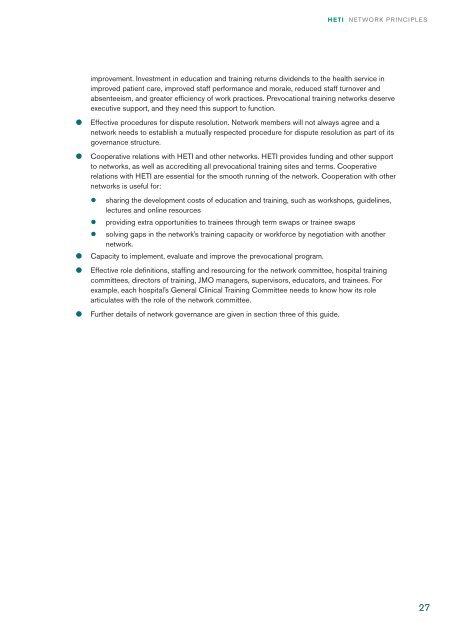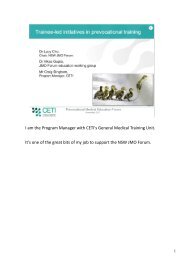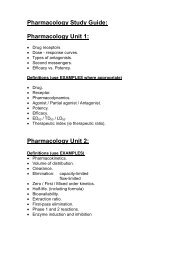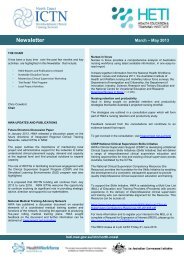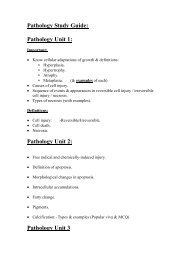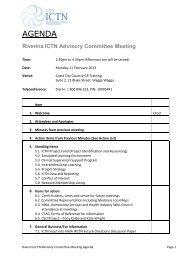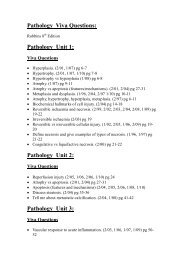Network principles for prevocational medical training - HETI
Network principles for prevocational medical training - HETI
Network principles for prevocational medical training - HETI
You also want an ePaper? Increase the reach of your titles
YUMPU automatically turns print PDFs into web optimized ePapers that Google loves.
<strong>HETI</strong> NETWORK PRINCIPLES<br />
improvement. Investment in education and <strong>training</strong> returns dividends to the health service in<br />
improved patient care, improved staff per<strong>for</strong>mance and morale, reduced staff turnover and<br />
absenteeism, and greater efficiency of work practices. Prevocational <strong>training</strong> networks deserve<br />
executive support, and they need this support to function.<br />
• z Effective procedures <strong>for</strong> dispute resolution. <strong>Network</strong> members will not always agree and a<br />
network needs to establish a mutually respected procedure <strong>for</strong> dispute resolution as part of its<br />
governance structure.<br />
• z Cooperative relations with <strong>HETI</strong> and other networks. <strong>HETI</strong> provides funding and other support<br />
to networks, as well as accrediting all <strong>prevocational</strong> <strong>training</strong> sites and terms. Cooperative<br />
relations with <strong>HETI</strong> are essential <strong>for</strong> the smooth running of the network. Cooperation with other<br />
networks is useful <strong>for</strong>:<br />
zz<br />
zz<br />
zz<br />
sharing the development costs of education and <strong>training</strong>, such as workshops, guidelines,<br />
lectures and online resources<br />
providing extra opportunities to trainees through term swaps or trainee swaps<br />
solving gaps in the network’s <strong>training</strong> capacity or work<strong>for</strong>ce by negotiation with another<br />
network.<br />
• z Capacity to implement, evaluate and improve the <strong>prevocational</strong> program.<br />
• z Effective role definitions, staffing and resourcing <strong>for</strong> the network committee, hospital <strong>training</strong><br />
committees, directors of <strong>training</strong>, JMO managers, supervisors, educators, and trainees. For<br />
example, each hospital’s General Clinical Training Committee needs to know how its role<br />
articulates with the role of the network committee.<br />
• z Further details of network governance are given in section three of this guide.<br />
27


